SEO vs PPC: Which is Better for Your Business
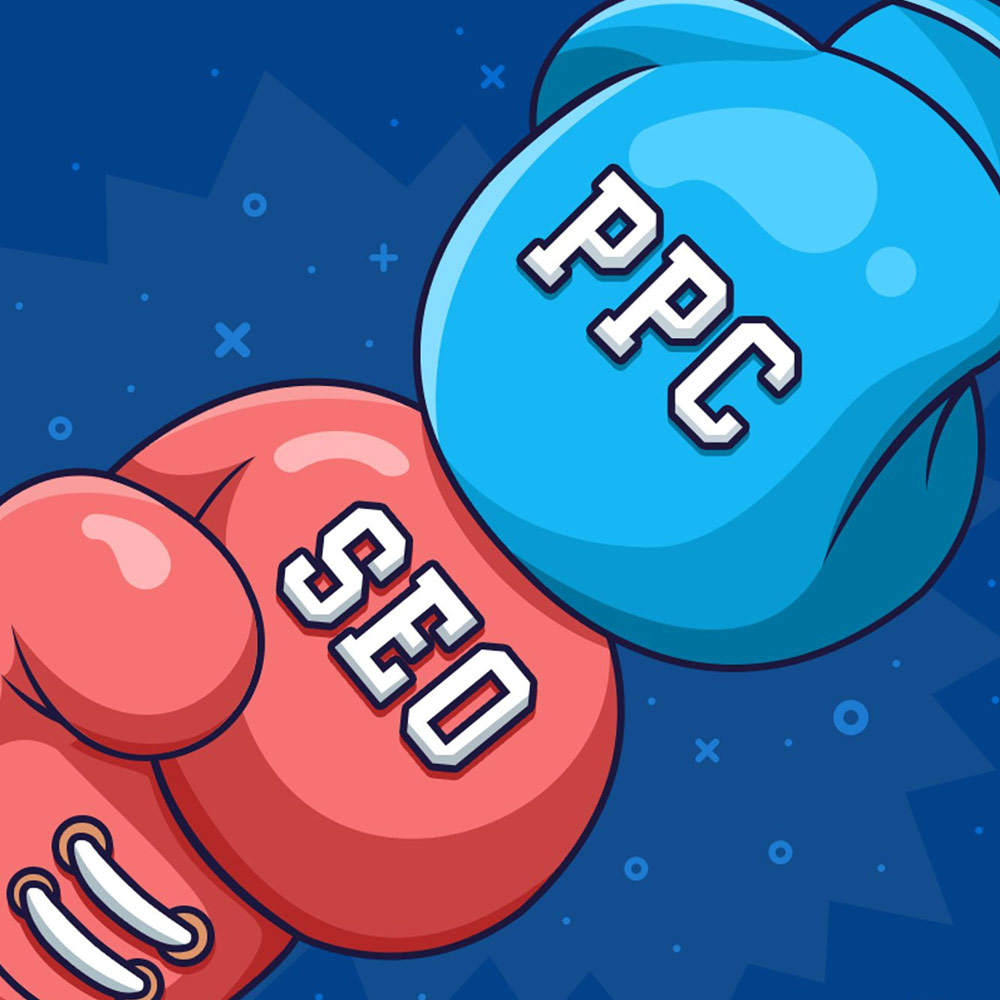
SEO vs PPC
In the digital marketing world, search engine optimization (SEO) and pay-per-click (PPC) advertising are two popular techniques for driving traffic to a website. Both have their pros and cons, and it can be challenging to determine which one is better for your business. In this article, we’ll take a deep dive into SEO vs PPC, compare its advantages and disadvantages, and help you decide which strategy is right for you.
What is SEO?
SEO stands for search engine optimization, which is the process of optimizing a website to rank higher in search engine results pages (SERPs). The goal of SEO is to increase organic traffic to a website by improving its visibility and relevance to search engines.
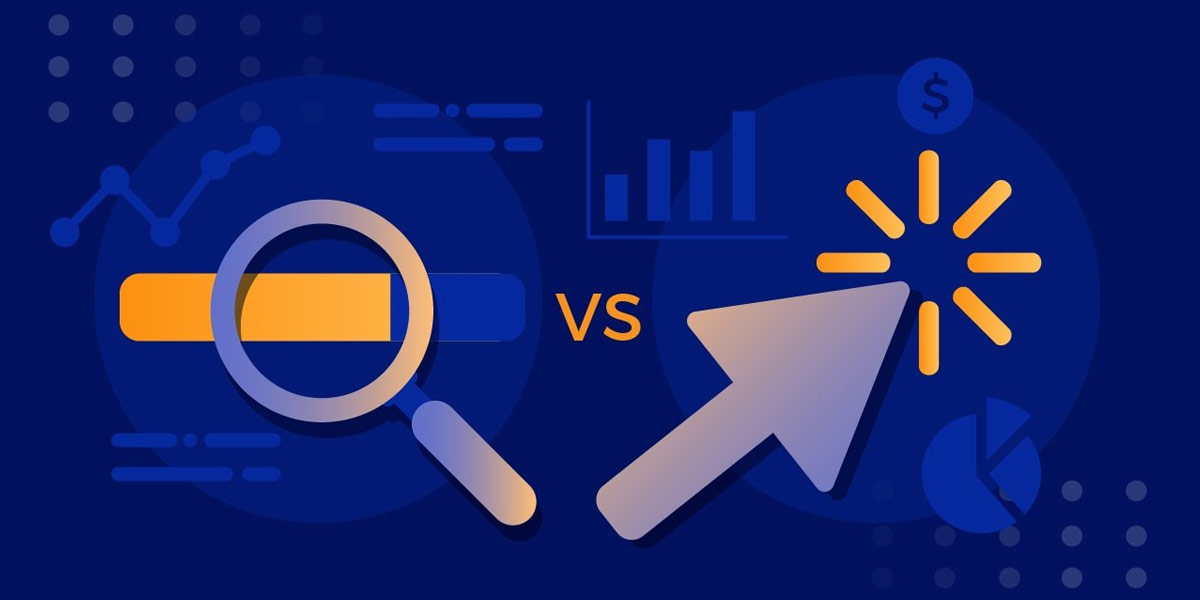
SEO vs PPC: Which is Better for Your Business – What is SEO?
How does SEO work?
Search engines like Google use algorithms to evaluate websites and rank them based on various factors such as relevance, quality, and user experience. SEO involves optimizing these factors to improve a website’s ranking.
Some of the key elements of SEO include:
- Keyword research and optimization
- On-page optimization (such as optimizing content and meta tags)
- Off-page optimization (such as building backlinks)
- Technical optimization (such as improving website speed and mobile-friendliness)
- User experience optimization (such as improving website navigation and usability)
Advantages of SEO
There are several advantages of using SEO to drive traffic to your website:
- Cost-effective: SEO is generally less expensive than PPC, as there are no direct costs associated with ranking higher in organic search results.
- Long-term benefits: SEO is a long-term strategy that can provide sustained traffic and visibility to a website over time.
- High-quality traffic: Organic traffic generated through SEO is generally of higher quality, as it is more targeted and relevant to the user’s search intent.
- Improved credibility: Websites that rank higher in organic search results are generally perceived as more credible and trustworthy by users.
- Competitive advantage: Ranking higher in search results can give a business a competitive advantage over its competitors.
Disadvantages of SEO
While there are many benefits of SEO, there are also some disadvantages to consider:
- Time-consuming: SEO is a long-term strategy that requires ongoing effort and time investment to achieve results.
- Unpredictable: Search engine algorithms are constantly changing, which means that SEO rankings can be unpredictable and volatile.
- Results may take time: It can take several months to see significant results from SEO efforts, which can be frustrating for businesses that need immediate results.
- Requires expertise: SEO requires technical expertise and knowledge of search engine algorithms, which can be challenging for businesses without SEO experience.
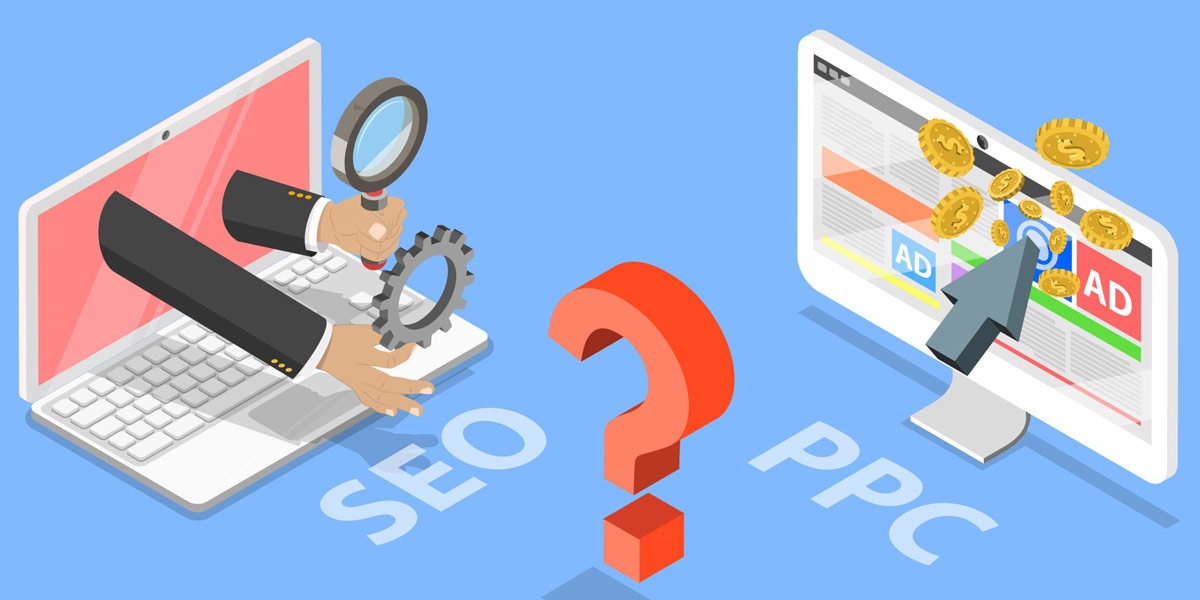
SEO vs PPC: Which is Better for Your Business – Disadvantages of SEO
What is PPC?
PPC stands for pay-per-click, which is a digital advertising model in which advertisers pay a fee each time their ad is clicked. PPC ads are typically displayed at the top or bottom of search engine results pages (SERPs) or on other websites that are part of a display network.
How does PPC work?
In PPC advertising, advertisers bid on specific keywords or phrases related to their products or services. When a user searches for those keywords, the ads are displayed at the top or bottom of the SERP. Advertisers only pay when someone clicks on their ad, hence the name “pay-per-click.”
PPC ads can also be displayed on other websites that are part of a display network. These ads can be in the form of text, images, or video and can be targeted based on demographics, interests, and other factors.
Advantages of PPC
There are several advantages of using PPC advertising:
- Immediate results: PPC advertising can generate immediate traffic to a website, making it an ideal strategy for businesses that need fast results.
- Highly targeted: PPC advertising allows businesses to target their ads to specific demographics, locations, and interests.
- Predictable costs: Advertisers only pay when someone clicks on their ad, which means that costs are predictable and can be easily managed.
- Easy to track: PPC advertising provides detailed analytics and tracking, making it easy to measure the effectiveness of ad campaigns.
- Flexibility: Advertisers can easily adjust their ad campaigns based on performance and changing market conditions.
Disadvantages of PPC
While there are many benefits of PPC advertising, there are also some disadvantages to consider:
- High costs: PPC advertising can be expensive, especially for highly competitive keywords.
- Limited visibility: PPC ads only appear in designated areas of search results pages, which means that they may not be as visible as organic search results.
- Ad fatigue: Over time, users may become less responsive to ads, leading to ad fatigue and decreased effectiveness.
- Requires expertise: PPC advertising requires technical expertise and knowledge of ad platforms, which can be challenging for businesses without PPC experience.
- Ad blockers: Some users may have ad blockers installed, which can prevent them from seeing PPC ads.
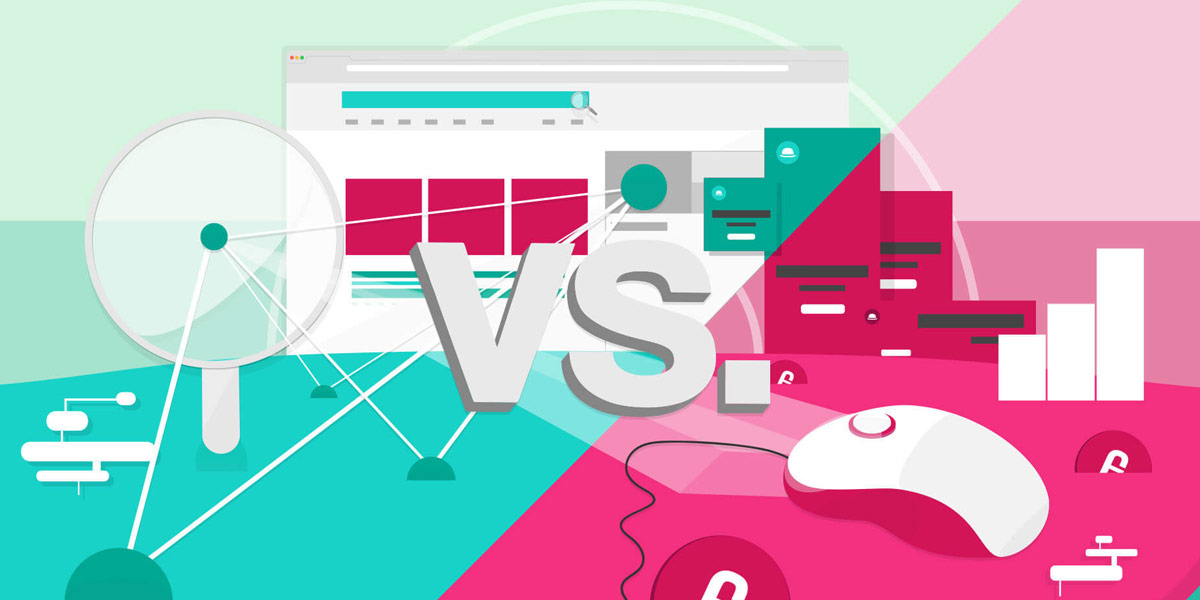
SEO vs PPC: Which is Better for Your Business -Disadvantages of PPC
SEO vs PPC: Which one is better for your business?
The decision to use SEO or PPC depends on several factors, including cost, timeframe, traffic quality, keyword research, targeting, analytics and tracking, and competition.
Cost
SEO is generally less expensive than PPC in the long run, as there are no direct costs associated with ranking higher in organic search results. However, SEO requires ongoing effort and time investment, which can be expensive in terms of resources and labour.
PPC, on the other hand, can be more expensive upfront, as advertisers pay for each click on their ad. However, PPC provides immediate results and predictable costs, which can be beneficial for businesses that need fast results.
Timeframe
SEO is a long-term strategy that requires ongoing effort and time investment to achieve results. It can take several months to see significant results from SEO efforts.
PPC, on the other hand, can generate immediate traffic to a website, making it an ideal strategy for businesses that need fast results.
Traffic Quality
Organic traffic generated through SEO is generally of higher quality, as it is more targeted and relevant to the user’s search intent. However, it can be difficult to compete with other websites that are also trying to rank for the same keywords.
PPC traffic is also highly targeted, but it may not be as high quality as organic traffic, as some users may click on ads out of curiosity or by mistake.
Keyword Research
Keyword research is essential for both SEO and PPC to identify relevant keywords and phrases that can be used to optimise content or create ad campaigns.
For SEO, keyword research helps businesses identify the most relevant and high-traffic keywords that they should target in their content. This involves researching search volumes, competition levels, and search intent to find the best keywords for a business’s target audience.
For PPC, keyword research is used to identify the keywords that businesses should bid on to display their ads in search results. This involves identifying relevant keywords that are likely to generate high-quality traffic and bidding on them to ensure that the ads are displayed when users search for those keywords.
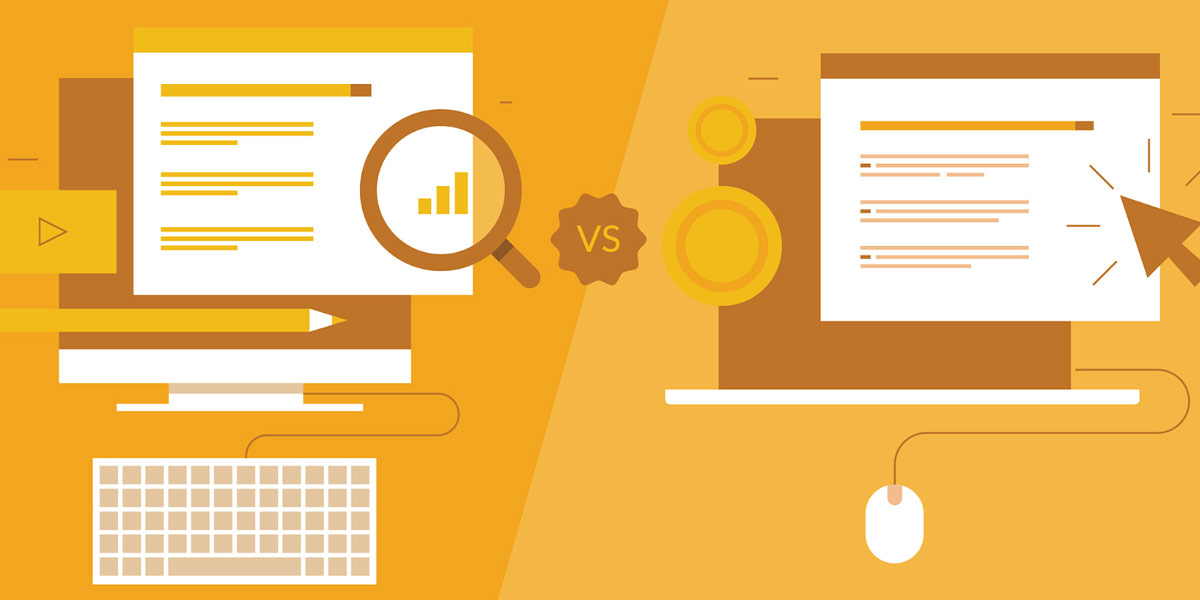
SEO vs PPC: Which is Better for Your Business?
Targeting
Both SEO and PPC provide targeting options that allow businesses to reach specific demographics, locations, and interests.
For SEO, businesses can target specific keywords and phrases that are relevant to their target audience. They can also use on-page optimisation techniques to target specific locations, languages, and interests.
For PPC, businesses can target specific demographics, locations, and interests using targeting options provided by ad platforms. This allows them to reach a highly targeted audience and maximise the effectiveness of their ad campaigns.
Analytics and Tracking
Both SEO and PPC provide analytics and tracking tools that allow businesses to measure the effectiveness of their efforts.
For SEO, businesses can use tools like Google Analytics to track website traffic, user behaviour, and other metrics that are relevant to their goals.
For PPC, ad platforms provide detailed analytics and tracking tools that allow businesses to monitor the performance of their ad campaigns in real time. This includes metrics like impressions, clicks, click-through rates, and conversion rates.
Competition
Competition is a major factor to consider when deciding between SEO and PPC.
For SEO, competition can make it difficult for businesses to rank higher in organic search results. It can take time and effort to compete with other websites that are targeting the same keywords.
For PPC, competition can drive up the cost of bidding on keywords, making it more expensive for businesses to run ad campaigns.
When to use SEO
SEO is a great long-term strategy for businesses that want to generate sustainable organic traffic. Here are some situations where SEO may be the best option:
- You have a limited budget: SEO can be cost-effective in the long run as it does not require ongoing ad spend. However, it does require an investment in time and resources upfront to create high-quality content and optimize your website.
- You want to build brand awareness: SEO can help you improve your online visibility and establish your brand as an authority in your industry. By creating high-quality content that answers your target audience’s questions and addresses their pain points, you can attract and engage potential customers.
- You want to drive targeted traffic: SEO allows you to target specific keywords and phrases that your target audience is searching for. By creating content that addresses their needs and interests, you can attract high-quality traffic that is more likely to convert.
When to use PPC
PPC can be a great option for businesses that want to generate traffic quickly and have a budget to invest in paid advertising. Here are some situations where PPC may be the best option:
- You have a new website: PPC can help you generate traffic and leads while you build up your organic search rankings. By bidding on relevant keywords and phrases, you can drive targeted traffic to your site and start generating leads and sales.
- You want to target specific audiences: PPC allows you to target specific demographics, locations, interests, and behaviours. This can help you reach your ideal audience and increase the likelihood of conversions.
- You want to test new marketing messages: PPC can be a great way to test new marketing messages and landing pages to see what resonates with your target audience. By monitoring your ad performance and making adjustments as needed, you can optimize your campaigns for maximum ROI.
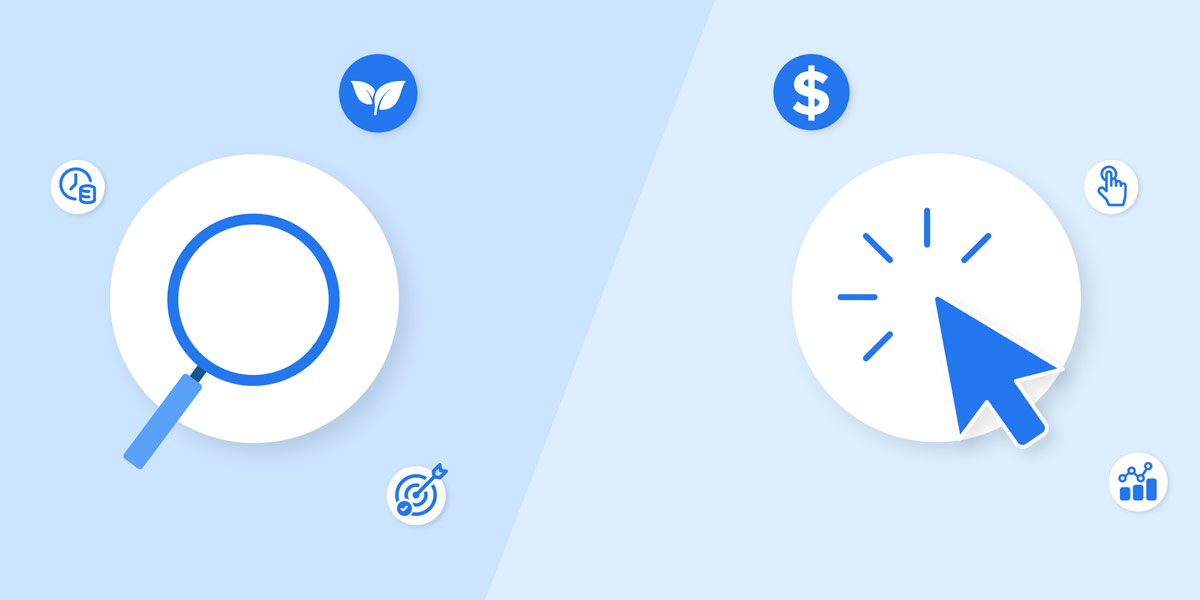
SEO vs PPC: Which is Better for Your Business – When to use SEO
Conclusion
SEO and PPC are both effective digital marketing strategies that can help businesses increase their online visibility, attract more traffic to their website, and generate more leads and sales. The decision to use SEO or PPC depends on several factors, including cost, timeframe, traffic quality, keyword research, targeting, analytics and tracking, and competition.
Businesses should evaluate their goals, budget, and resources to determine which strategy is the best fit for their needs. They may also consider using a combination of both SEO and PPC to maximise their online visibility and reach a wider audience.
FAQs
Is SEO better than PPC?
There is no one-size-fits-all answer to this question as it depends on your business goals, budget, and target audience. SEO is a long-term strategy that can help you generate organic traffic, but it can take time to see results. PPC, on the other hand, can help you generate traffic quickly, but it can be expensive in the long run. The best approach is to evaluate your goals and budget to determine which strategy is the best fit for your business.
How long does it take to see results from SEO?
It can take several months to see the results of your SEO efforts as it takes time for search engines to crawl and index your website. However, if you follow best practices and create high-quality content, you can start to see results within a few weeks.
Can PPC ads help with SEO?
While PPC ads do not directly impact SEO rankings, they can indirectly improve your SEO efforts. By driving more traffic to your website and increasing your brand visibility, you can generate more backlinks and social shares, which can improve your search engine rankings.
How much does PPC advertising cost?
The cost of PPC advertising depends on several factors, including the competitiveness of the keywords you are bidding on, the quality of your ads and landing pages, and your ad budget. The cost per click (CPC) can range from a few cents to several dollars or more, depending on your industry and target audience.
Should I use SEO or PPC for my business?
The decision to use SEO or PPC depends on your business goals, budget, and target audience. If you have a limited budget and need to generate traffic quickly, PPC may be the best option. If you have a long-term outlook and want to generate sustainable organic traffic, SEO may be the better choice. Ultimately, the best approach is to evaluate your goals, budget, and resources to determine which strategy is the best fit for your business.

